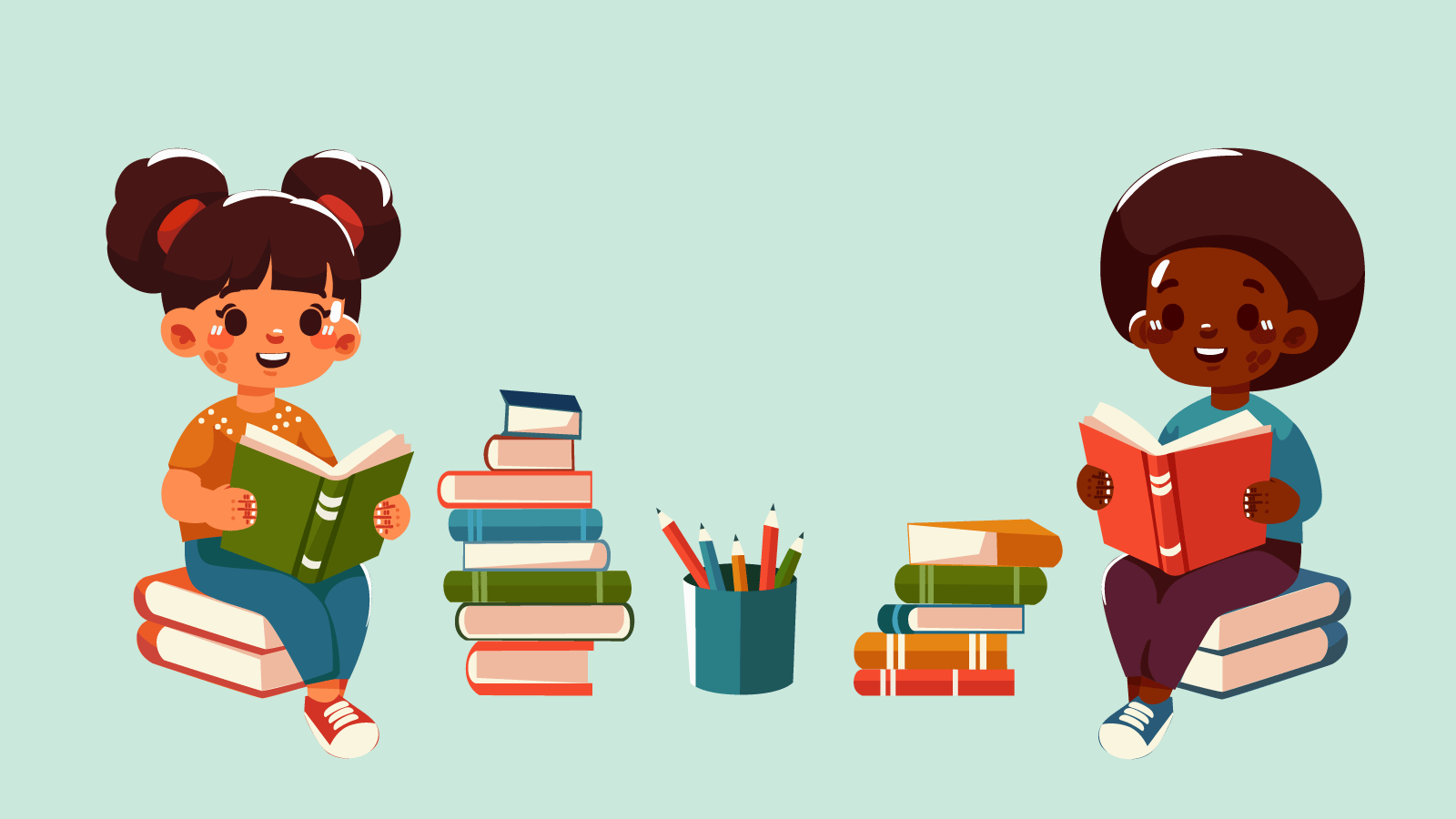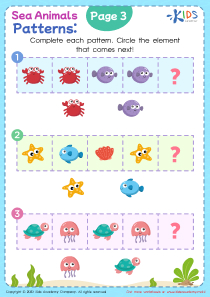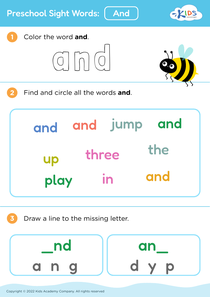Phonics recognition Preschool Worksheets
5 filtered results
-
From - To
Boost your preschooler’s phonics skills with our engaging Phonics Recognition Worksheets! Designed specifically for young learners, these printable resources make mastering letter sounds fun and interactive. Our worksheets cover essential phonics concepts, helping children to identify letters and their corresponding sounds through colorful activities and exercises. Perfect for home or classroom use, these worksheets encourage independent learning and enhance literacy development at an early age. Foster a love for reading and writing while building a strong foundation in phonics with our carefully crafted materials. Start your child's educational journey today with our exciting and effective phonics recognition resources!
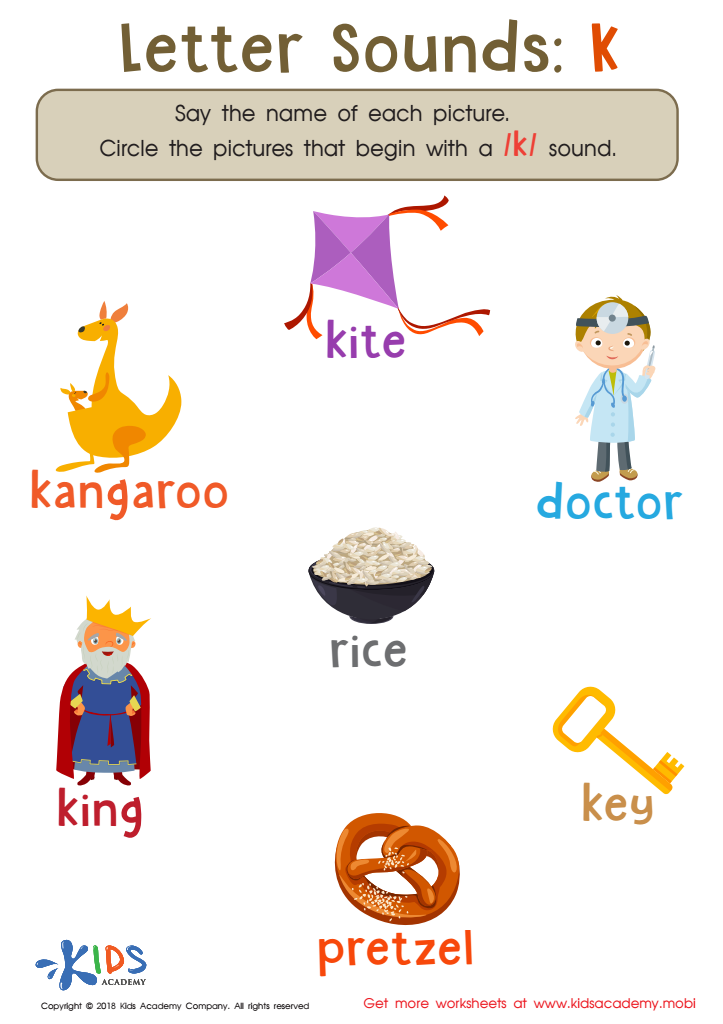

Letter K Sounds Worksheet
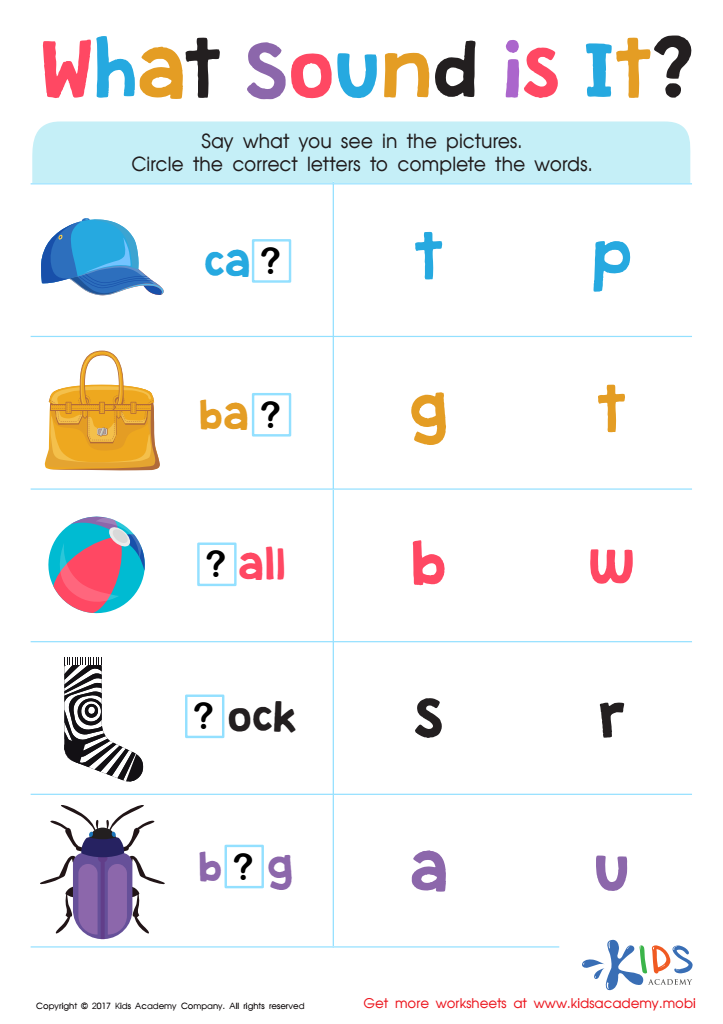

What Sound Is it? Worksheet
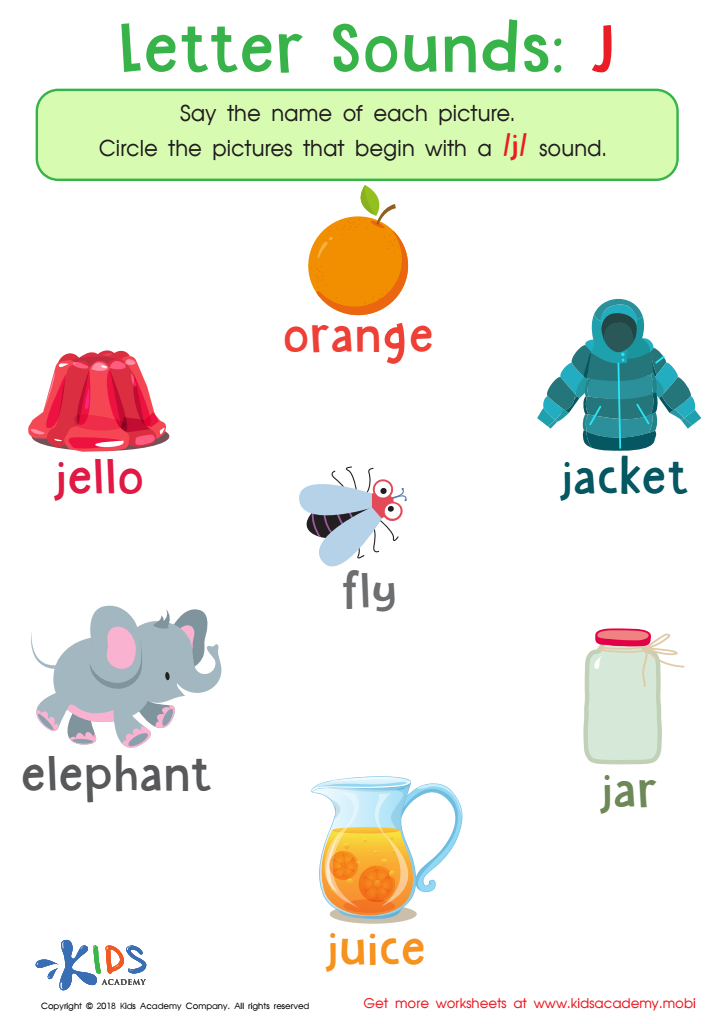

Letter Sounds: J Printable Worksheet


Phonics and Word Recognition: Assessment 1 ELA Worksheet
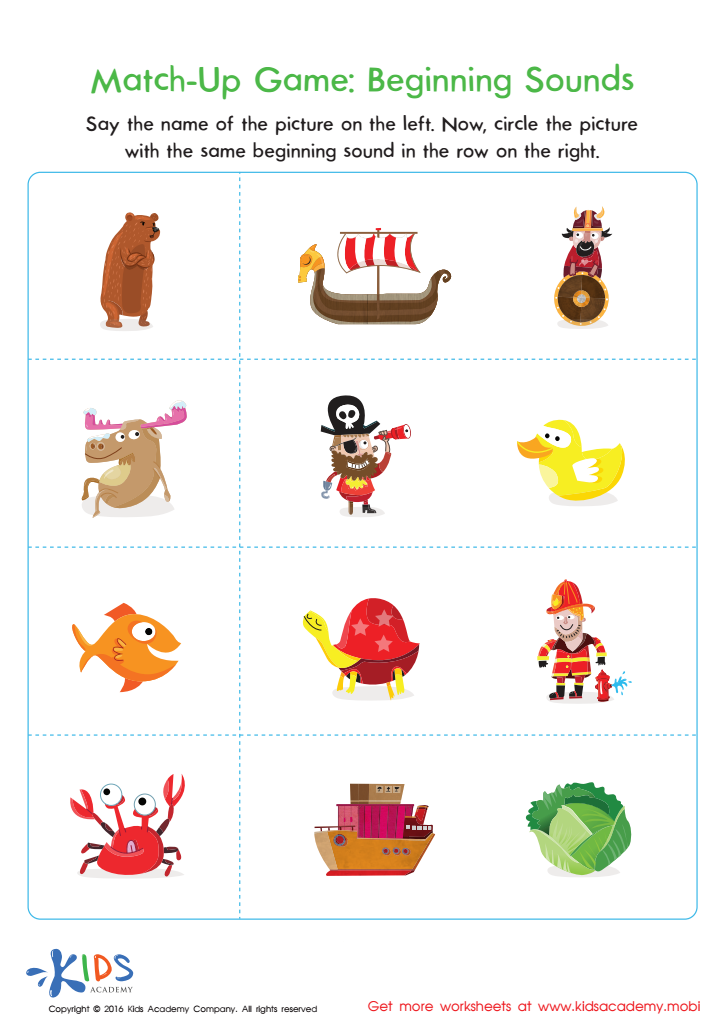

Match–Up Game: Beginning Sounds Worksheet
Phonics recognition is a foundational skill for reading that every preschool child should develop. For parents and teachers, understanding its importance is crucial for fostering literacy and overall academic success. Phonics teaches children the relationship between letters and sounds, enabling them to decode words. This skill is particularly vital because it lays the groundwork for reading fluency and comprehension.
When children recognize phonics patterns early on, they build confidence in their reading abilities, making them more eager to engage with books and learning materials. This early exposure can significantly influence their academic trajectory, helping them avoid potential reading difficulties as they progress through school. Furthermore, phonics instruction promotes language development by expanding children's vocabulary and improving their spelling.
For parents, being involved in their child's phonics learning not only enhances the child’s educational experience but also strengthens the parent-child bond through shared reading activities. For teachers, implementing phonics in the classroom satisfies curriculum requirements while equipping students with critical skills. Overall, fostering phonics recognition in preschool ultimately leads to lifelong literacy skills, a greater love for learning, and improved academic outcomes, making it a priority for both parents and educators.
 Assign to My Students
Assign to My Students







